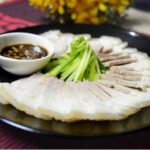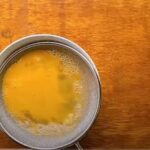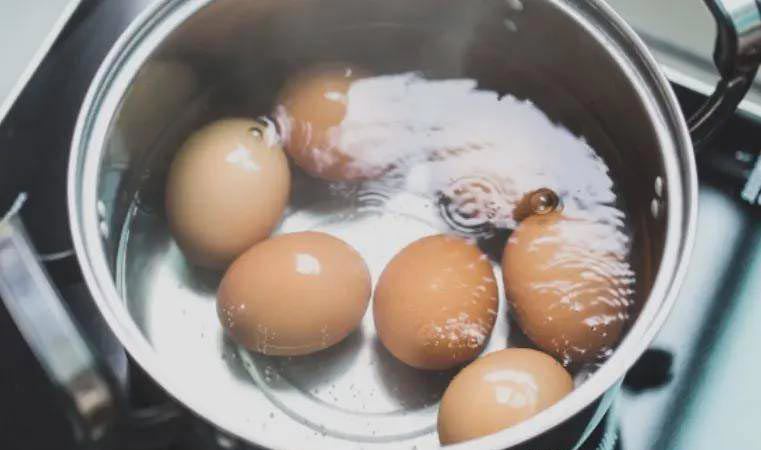
While boiling eggs is not a difficult task, achieving the perfect soft, fragrant, and easily peelable egg is a challenge for many. Most people simply put the eggs in a pot, turn on the stove, and wait for the eggs to cook. However, this method often leads to cracked eggs and a loss of nutrients.
To boil eggs as delicious as those from street vendors, Bếp Eva shares these 5 simple steps.
1. Soak the Eggs
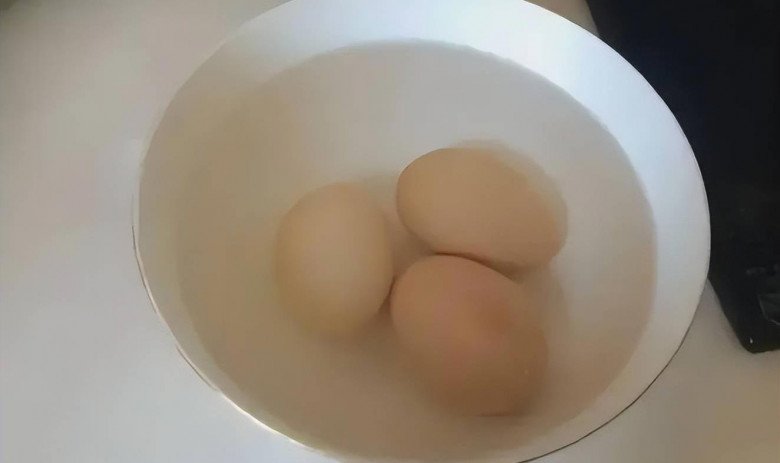
Eggs sold in markets are often not “fresh.” Due to prolonged storage, the egg shells lose some moisture over time. Therefore, boiling them directly will affect the flavor of the dish.
The correct method is to soak the eggs in clean water for about 10 minutes. Remember to carefully check the egg shells for any cracks.
2. Use Cold or Hot Water?
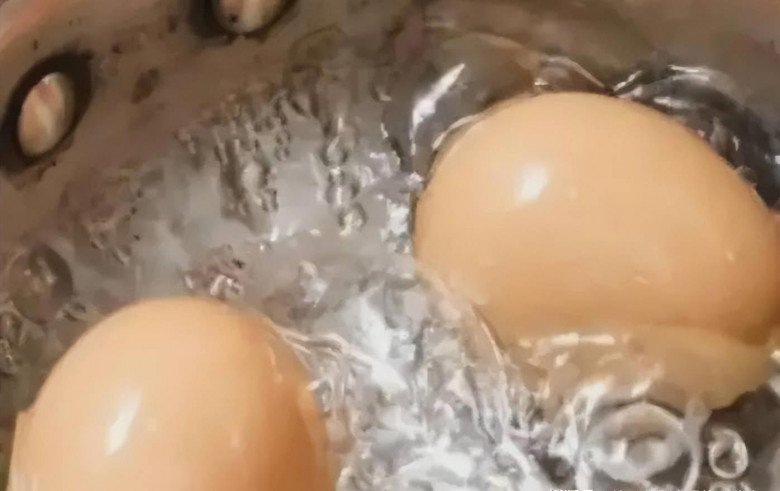
You may not know that the success of boiling eggs largely depends on this step. If you use cold water, the low temperature makes it difficult for proteins to coagulate, resulting in longer cooking times that can dry out the eggs.
On the other hand, using boiling water can quickly coagulate proteins, but the high temperature and vigorous movement of the water can cause the eggs to knock against each other and crack. This leads to protein loss.
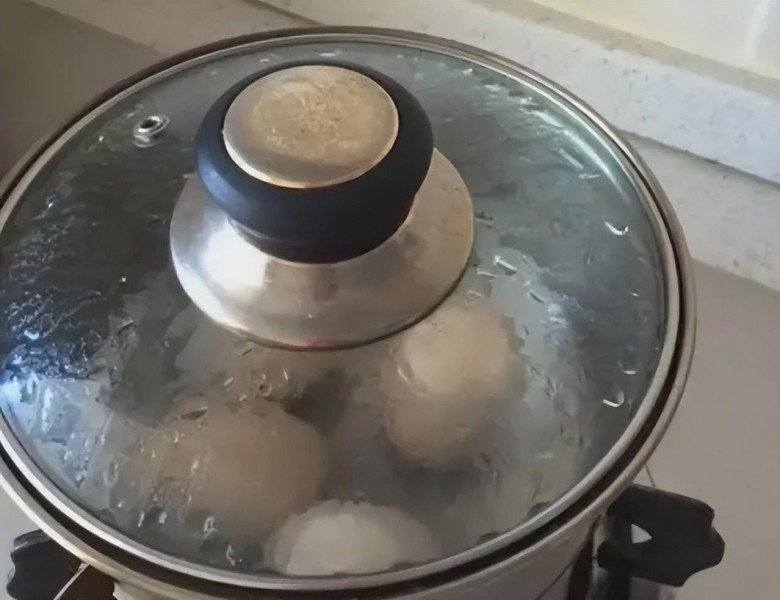
The ideal approach is to heat the water to a gentle simmer at 60 – 70°C (140 – 158°F) and then gently lower the eggs into the pot. Cover the pot; this temperature is sufficient to cook both the egg whites and yolks without cracking or breaking the shells.
3. Maintain a Low Flame
Even though the eggs won’t crack if you boil them in warm water, improper temperature control can still lead to this issue.
Chefs usually maintain a low flame when boiling eggs. After 8 – 10 minutes, the yolks and whites will be fully cooked. Do not overboil the eggs, as this will cause them to lose moisture, dry out, and become less tasty.
4. Add Vinegar and Salt
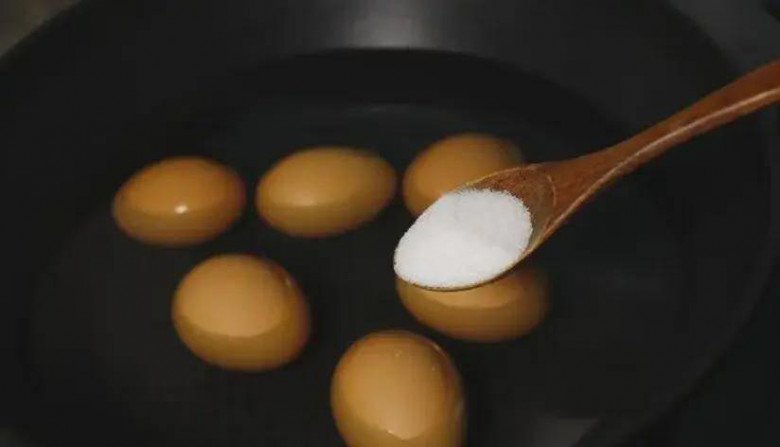
A little-known trick to boiling eggs is to add salt and vinegar. These ingredients help make the eggs softer and more delicious. Additionally, vinegar is a key factor in making the eggshells easier to peel.
5. Soak in Cold Water After Boiling
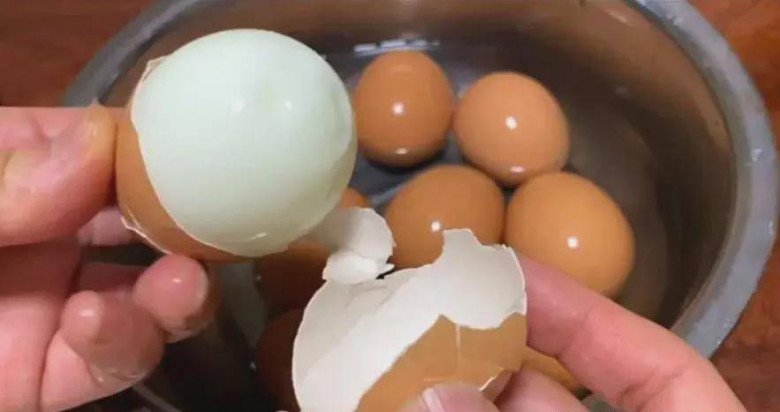
After boiling, immediately transfer the eggs to a bowl of cold water. Eating freshly boiled hot eggs is not only challenging due to the heat but also because the shells are difficult to remove. Cold water effectively cools down the eggs, and since protein acts like a glue, it tends to expand when heated and contract when cooled. Therefore, soaking the eggs in cold water helps the protein contract, making the shells easier to peel.
Refer to these steps to boil eggs like a professional chef:
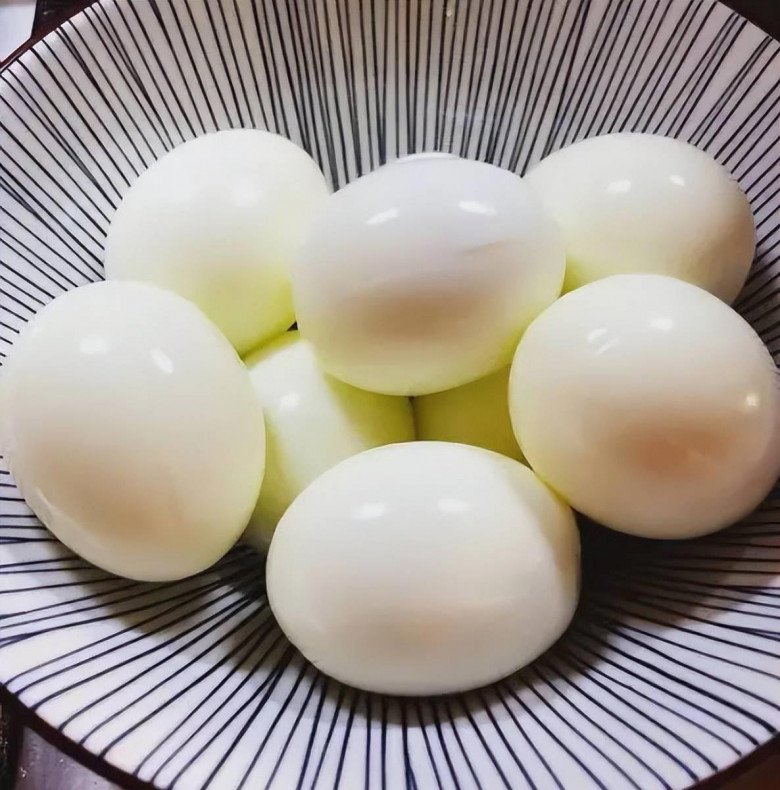
Ingredients
– Salt
– Chicken eggs
– White vinegar
Instructions
1. Rinse the eggs to remove any dirt or debris from the shells, then soak them for about 10 minutes.
2. Heat water to a gentle simmer at 60 – 70°C (140 – 158°F) and gently lower the eggs into the pot. Be careful not to drop them too quickly to avoid cracking the shells.
3. Add a few grains of salt and 1 teaspoon of vinegar. Cover the pot, and when the eggs start to boil, reduce the heat to low and cook for about 8 minutes.
4. Turn off the heat, remove the eggs with a slotted spoon, and place them in a bowl of cold water. Lightly tap the shells and peel them off. Your perfectly boiled eggs are now ready to be enjoyed.
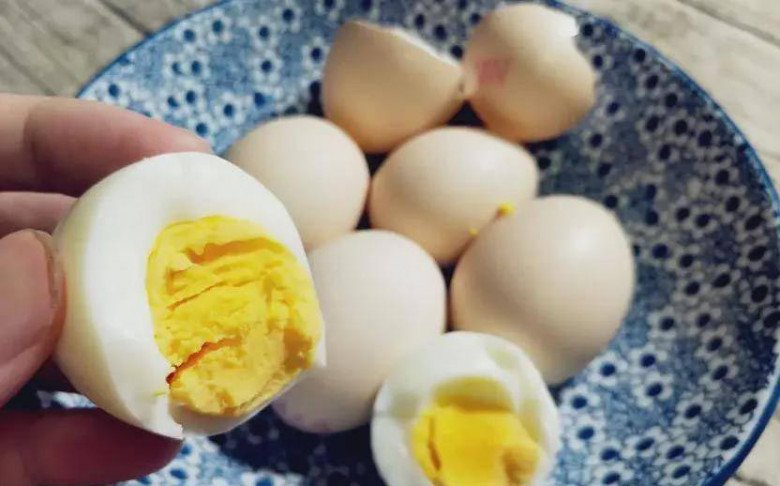
Boiled chicken eggs can be enjoyed as is, dipped in soy sauce, or used in various dishes such as braised eggs with meat or egg tomato sauce.
The Ultimate Guide to Spicing Up Your Meat: 3 Spices to Avoid for a Delicious Broth
“Boiled meat is a popular dish due to its simplicity and delicious flavor. However, there are three key seasonings that should be avoided when boiling meat to preserve its taste. These seasonings can overpower the natural flavors of the meat and ruin the dish. By excluding these ingredients, you can ensure a tasty and appetizing meal every time.”
























